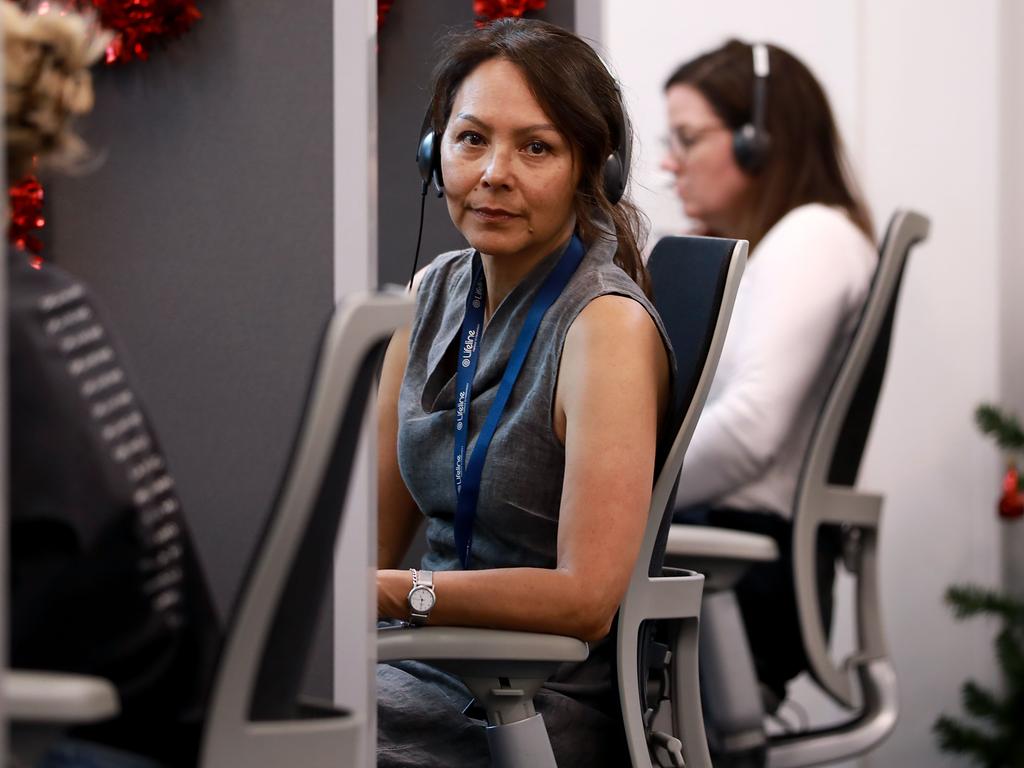EAP psych data helping companies build wellbeing policies
Corporate counselling programs may be anonymous but they are now collecting useful data for employers.

About eight million Australians have access to employee assistance programs provided by their employers, with a take-up rate of almost 12 per cent. And while confidentiality is a key element of the counselling sessions, providers increasingly are offering aggregated, anonymous data to companies to assist them in their mental health and wellbeing policies.
Cate Page, executive director at provider Converge International, says while EAP is designed for short-term mental health assistance, providers are taking a longer-term approach to the material gleaned in sessions.
“Today EAP is really sophisticated,” says Page. “We’re increasingly moving into the digital world.
“We’re in a unique position where we can work with organisations with the data we collect anonymously, and aggregate data. We can then feed non-identifying data back to organisations, allowing them to create wellbeing programs.”
EAPs have been in the spotlight with the revelation that organisations such as the Australian Defence Force routinely ask candidates to sign over access to notes taken by psychologists during counselling sessions.
Offering access to EAPs is a growth area in workplace and HR-related services, with employees able to have three to six sessions of free counselling each year. The programs first became available in the 1980s, after years of campaigning from unions and mental health advocates, and have evolved to ensure confidentiality: managers do not know which staff members have attended sessions and simply are billed each month.
EAP providers regard confidentiality as crucial: information from sessions is not shared unless subpoenaed by a court or if the client is at risk of hurting themselves or others. The exception is when a client signs over the notes, as per the ADF requests.
Lana Schwartz, a psychologist with 20 years experience, is president of the Employee Assistance Professional Association of Australasia, which oversees programs under the EAP banner.
She says EAPs exist for two reasons: employers genuinely care about staff wellbeing and they see the importance of mental health in terms of productivity.
“Organisations have realised that if employees are at work and they’re distracted by what’s going on or other issues, they’re not concentrating,” Schwartz says. “And if they’re not concentrating, they’re certainly not being as productive or engaged as they could be.”
During the past five years, as mental health awareness has become commonplace, companies also have recognised that general wellbeing is important.
Says Schwartz: “We don’t just want people to be not having issues in the workplace, we also want them to be coming to work with a positive mindset that they really want to be there.”
As industries mature, the mental health and wellbeing of workers increasingly has been seen as a responsibility of employers. More broadly, Schwartz argues that today we all carry a duty of care if we know a colleague is struggling.
“I think the company has a responsibility, a duty of care, to support a person who is struggling,” she says.
“We know that 85 per cent of people who visit an EAP (counsellor) will resolve the issue that they’ve come to see a provider about. We also know that EAP is short term, so we resolve issues within a month or within two months of the person presenting. This is a short-term process that allows really quick outcomes for the individual, which benefits the organisation.”
Page’s Converge International was one of the earliest EAP providers in Australia. It began as a pastoral counselling service for first responders in the Country Fire Authority. The company now serves 1200 companies including the ADF, Australia Post, AGL, Origin and Qantas.
“EAP is based on a modality called short-term, solution-focused therapy,” she says. “It allows us to triage the issues, to deal with immediate issues and provide support.
“In the majority of cases we actually complete the therapeutic intervention.”
After decades in the industry, Page has come to prefer short-term counselling programs.
“I have worked in private counselling for more than 20 years and I prefer to work with a short-term, solution-focus therapy model because it’s very outcomes driven,” she says. “You are goal setting from the very beginning.”
One common misunderstanding of EAPs is that the provider will diagnose the client; Page says this is not the purpose of the model.
“The modality does not allow diagnosis, it is simply about providing support,” she says.
The take-up of EAP has increased during the pandemic, with almost 12 per cent of employees accessing programs when they are available. Schwartz says after the first Covid-19 lockdown in 2020, there was a huge increase in distressed calls to EAP providers,
“Without normal social connections and without things to look forward to, the optimism of people dropped,” she says. “During state-based lockdowns we definitely saw an increase in certain industries such as health, government, education and professional services.”






To join the conversation, please log in. Don't have an account? Register
Join the conversation, you are commenting as Logout